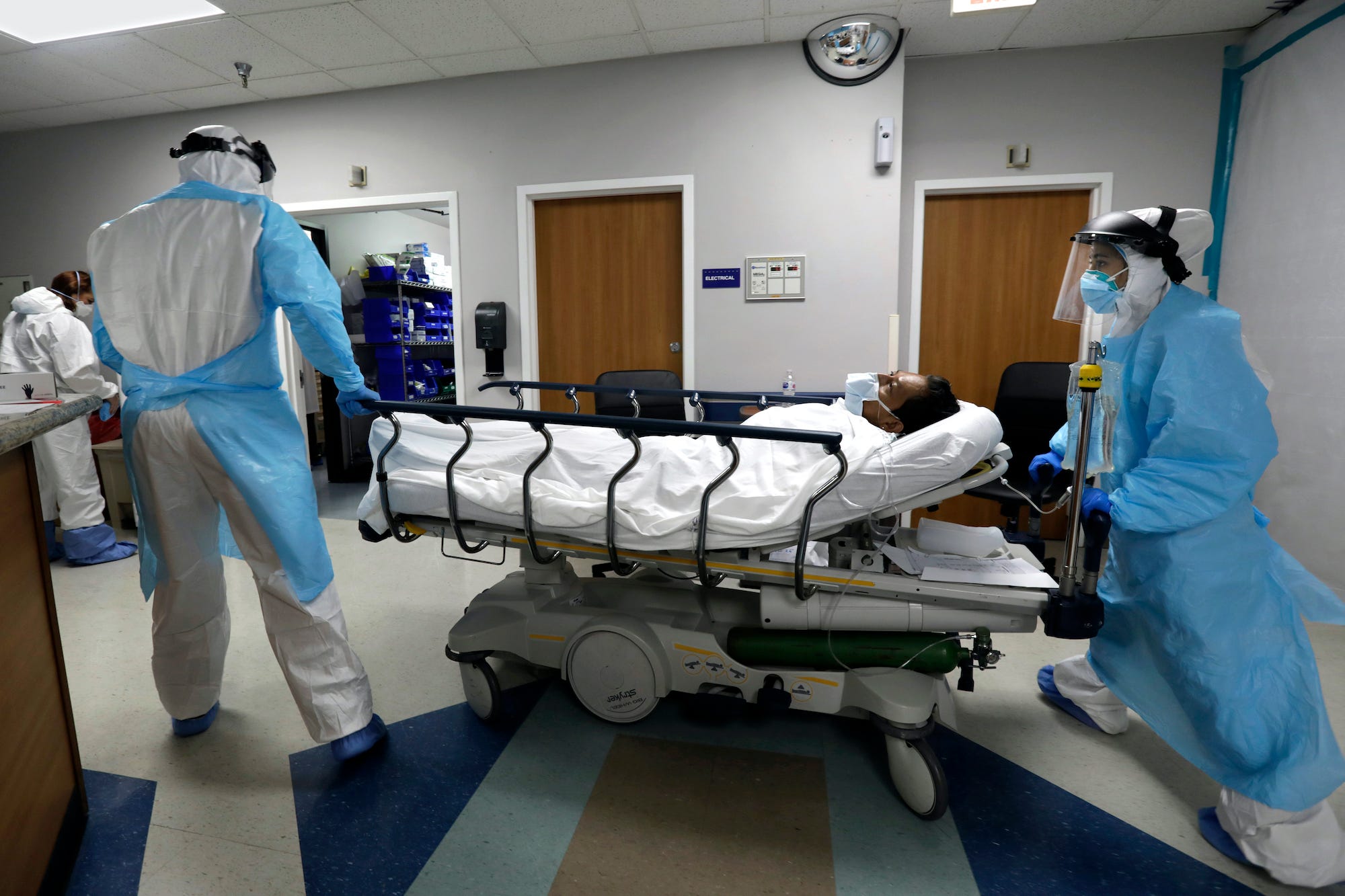
Carolyn Cole/Los Angeles Times via Getty Images
- A 71-year-old hospital patient with leukemia tested positive for the coronavirus in March.
- The woman remained infectious for at least 70 days.
- The case study shows that immunosuppressed people who get the coronavirus could remain contagious for longer than previously thought.
- Visit Business Insider’s homepage for more stories.
On March 2, a 71-year-old hospital patient with leukemia tested positive for the coronavirus.
On average, COVID-19 patients shed infectious virus particles for about eight days. But 70 days after her diagnosis, the elderly patient was still shedding infectious particles. By mid-June, more than 100 days later, the woman was still testing positive — meaning her body still contained traces of the virus’ genetic material.
“We think that at least up to day 70, this patient would have been able to spread the virus to others,” Vincent Munster, a virologist at National Institute of Allergy and Infectious Diseases, told Business Insider. Munster is the lead author of a recent case study about the woman.
Because the patient was quickly isolated in a room, she didn’t spread the virus to anyone else.

Thomas Lohnes/Getty Images
According to Munster’s study, published in the journal Cell earlier this week, the patient’s 70-day period of infectiousness is the longest such span ever seen in an asymptomatic coronavirus patient. For comparison, the longest-known span of infectious shedding for a symptomatic person is 61 days, according to an October study.
Researchers believe the situation arose because the woman's weakened immune system was unable to mount a substantial defense against the virus. Her blood tests never showed substantial amounts of antibodies, which in most patients help fight off infections. But she also never developed symptoms.
Immunocompromised people struggle to fight the coronavirus
The case study aligns with a growing body of research suggesting that immunocompromised people may shed the new coronavirus, whose clinical name is SARS-CoV-2, longer than people with healthy immune systems. A June study of 10 immunosuppressed patients with the coronavirus found that they shed viral particles for an average of 28.4 days. People with regularly functioning immune systems, by contrast, shed it for 12.2 days.
One reason for this is that people with more severe cases of COVID-19 tend to shed the virus for longer than other patients. Immunocompromised people face a far higher risk of severe illness because they can't fight off infections as well as those with healthy immune systems.
An estimated 3 million people in the US are immunocompromised in some way, including people with HIV and cancer patients receiving chemotherapy.

Ameer Al Mohammedaw/Getty
The patient in the new case study, however, had a distinctively weak immune system, Munster said. That means a 70-day infectiousness period like hers is probably very rare. The woman had a 10-year history of chronic leukemia, which is a type of cancer that infects white blood cells, an integral part of the immune system. She'd been hospitalized for anemia, a condition often related to leukemia because it depletes red blood cells.
She also had a condition in which the immune system can't make substantial antibodies, known as hypogammaglobulinemia.
"We think that this is a relatively rare occurrence tied to the very specific immune status of this patient," Munster said.
Still, it could mean that long-term shedding of the virus – defined as being infectious for at least 20 days – could be more common than previously thought in some immunocompromised people.
"Although it is difficult to extrapolate from a single patient, our data suggest that long-term shedding of infectious virus may be a concern in certain immunocompromised patients," the researchers wrote.
